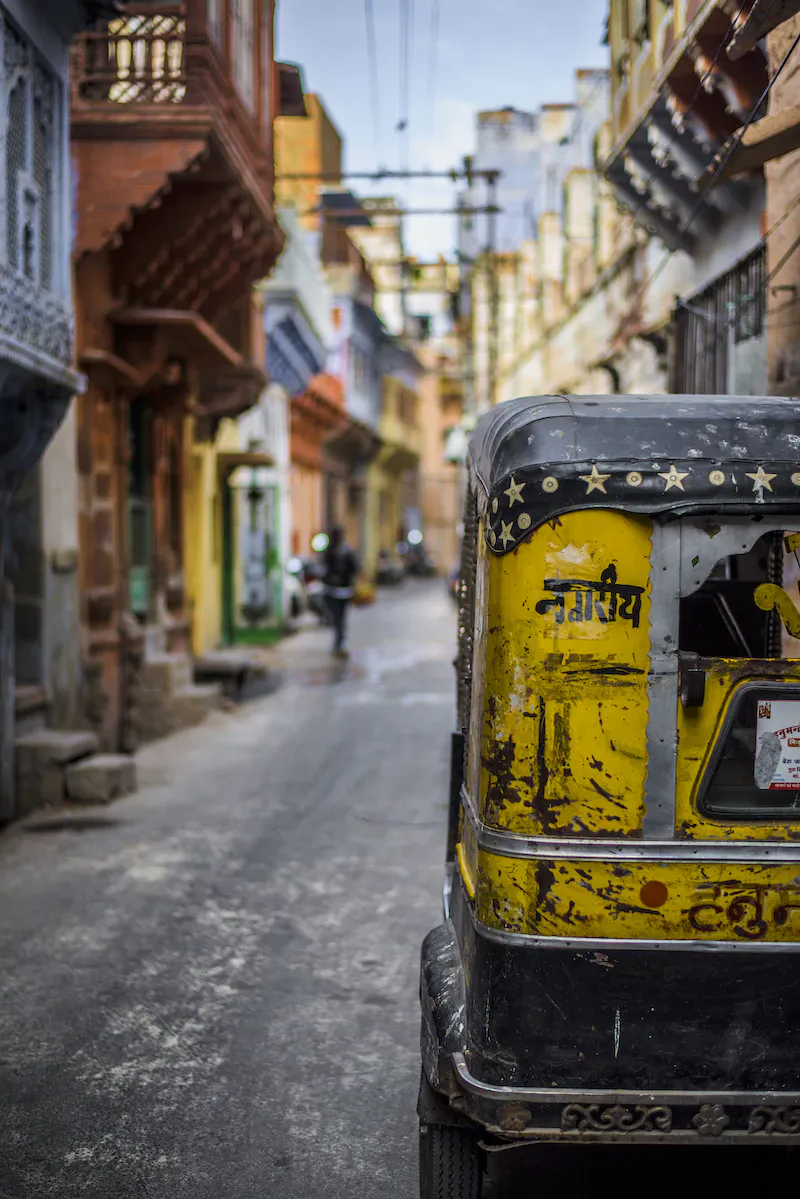Breaking the Silence: Tackling Indias Taboo on Sex Education

The Unanswered Questions About Sex and Sexuality in India
Sex and sexuality have been taboo subjects in India for centuries. Despite the increasing awareness and progress towards sexual rights and education, many fundamental questions about sex and sexuality still go unanswered in the country. These unanswered questions have resulted in a lack of knowledge, misconceptions, and stigmas around sex and sexuality.
One of the fundamental questions that remain unanswered in India is how to have a safe and healthy sexual life. Sexual education is not taught in schools, and parents rarely talk about it with their children, leading to a lack of knowledge about safe sex practices, sexually transmitted diseases (STDs), and contraception. As a result, India has one of the highest rates of HIV in the world.
Another question that remains unanswered is the acceptance of diverse sexual orientations and gender identities. In India, homosexuality was decriminalized in 2018, but society’s attitudes towards the LGBTQ+ community remain negative. The lack of acceptance and representation of the LGBTQ+ community in media, literature, and politics further exacerbates the issue.
Furthermore, the issue of consent in sexual relationships remains unaddressed. Many people in India do not understand what constitutes consent in a sexual relationship, leading to instances of sexual assault and rape. The #MeToo movement in India highlighted the magnitude of the problem, but more needs to be done to educate people about consent and hold perpetrators accountable.
In conclusion, there are several fundamental questions about sex and sexuality that remain unanswered in India. The lack of education and awareness around these issues has resulted in stigmas, misconceptions, and a lack of knowledge, leading to negative outcomes such as a high rate of STDs and sexual assault. It is imperative to address these issues through education and open discussions to create a safe and inclusive society.
The Importance of Comprehensive Sexuality Education in Enabling Young Adults
Comprehensive sexuality education is essential to help young adults understand their bodies, sexual health, and relationships. It provides them with the knowledge and skills to make informed decisions and take responsibility for their sexual and reproductive health. However, in India, comprehensive sexuality education is often neglected or stigmatized, leading to a lack of awareness and understanding among young adults.
According to the World Health Organization (WHO), comprehensive sexuality education includes “age-appropriate, culturally relevant, scientifically accurate information on human sexuality and sexual and reproductive health.” It covers topics such as anatomy, puberty, contraception, sexually transmitted infections, consent, and healthy relationships.
In the video script, it was mentioned that the lack of comprehensive sexuality education has led to many myths and misconceptions about sex and sexuality in India. For instance, many young adults believe that menstruation is dirty, shameful, and should be hidden. As a result, they may feel embarrassed or ashamed to talk about it, leading to poor menstrual hygiene practices and health problems.
Moreover, the absence of comprehensive sexuality education often leads to unsafe sexual practices and unintended pregnancies. The video script also highlights the importance of addressing the needs of marginalized communities, such as LGBTQ+ individuals, who often face discrimination and lack access to appropriate sexual health services and information.
Therefore, comprehensive sexuality education is critical to enabling young adults to make informed decisions about their bodies, relationships, and sexual health. It can help them build healthy relationships, prevent sexually transmitted infections, and reduce unintended pregnancies. Moreover, it can also contribute to breaking down harmful myths and stereotypes and promoting gender equality and social justice.
Why Silence and Shame Surrounding Sex in India Must End
Sex is still a taboo topic in India, and many people, especially women, face shame and stigma when it comes to sexual matters. This silence and shame can have severe consequences, such as the perpetuation of harmful gender norms, the spread of misinformation, and the inability to access necessary healthcare.
One reason for this stigma is the lack of comprehensive sexuality education in schools and families. Parents often avoid talking to their children about sex, and when they do, it is usually in a negative light. This lack of education leads to a lack of understanding, which perpetuates harmful stereotypes and myths about sex.
The shame and stigma around sex also contribute to a culture of victim-blaming and sexual violence. Women are often blamed for sexual harassment and assault, and are told that they must dress modestly and not go out at night to avoid such situations. This harmful mentality reinforces the idea that women are responsible for the actions of men and perpetuates a culture of rape culture.
Ending the silence and shame around sex is crucial to creating a safer and more equal society in India. This means educating young people about sexuality, promoting open and honest discussions about sex, and holding individuals and institutions accountable for perpetuating harmful gender norms and stereotypes. Only by breaking the silence and ending the shame can we create a society where everyone feels safe and enabled to make informed choices about their bodies and sexual health.
How Fear-Based Approaches to Sexual Violence Are Failing Society
One of the topics discussed in the video was the problem with fear-based approaches to sexual violence in India. These approaches include telling women to dress modestly, not to go out alone at night, and to carry pepper spray or other self-defense tools. While these suggestions may seem practical, they ultimately place the burden of preventing sexual violence on women instead of addressing the root of the problem.
Fear-based approaches also fail to address the fact that most sexual violence in India is perpetrated by someone known to the victim, such as a family member, friend, or neighbor. This means that telling women to be afraid of strangers and take precautions in public spaces does not address the majority of sexual violence cases.
Furthermore, fear-based approaches perpetuate victim-blaming and reinforce harmful gender norms. When women are told to dress modestly and not to go out at night, it sends the message that they are responsible for preventing sexual violence. This can lead to victim-blaming when a woman is assaulted, with people asking why she was out late at night or why she was wearing revealing clothing.
Instead of fear-based approaches, the video suggests a shift towards education and giving power. This includes comprehensive sexuality education that teaches young people about consent, healthy relationships, and communication skills. It also means addressing the root causes of sexual violence, such as toxic masculinity and patriarchal attitudes.
Ultimately, ending sexual violence in India requires a multi-faceted approach that includes education, giving power, and addressing societal attitudes towards gender and sexuality.
Breaking the Patriarchal Mindset: Men and Boys Must Take Accountability for Sexual Education
The conversation around sex education in India cannot be complete without addressing the role of men and boys in the discourse. It is important to recognize that the patriarchy is a pervasive problem in Indian society, and it perpetuates the stigma and taboo around sex and sexuality. Therefore, men and boys must take accountability for sexual education to break the cycle of toxic masculinity that leads to sexual violence.
Boys in India are socialized to view women as inferior, and they grow up learning about sex from harmful and unrealistic media portrayals. These stereotypes create a culture that shames women for their sexuality and enables men to behave irresponsibly. Hence, men must become active participants in conversations around sex education, and they must actively work towards dismantling the patriarchal mindset.
It is essential to create safe spaces for boys and men to learn and discuss issues around sex and sexuality. These spaces need to be inclusive and recognize the diversity of identities, orientations, and experiences. By involving men and boys in sexual education, we can shift the narrative towards healthy and respectful sexual relationships and create a more equitable society.
Overall, it is crucial to recognize that sex education is not just the responsibility of women or educators; it is the responsibility of society as a whole. By breaking the patriarchal mindset and involving men and boys in the conversation, we can create a safer and more inclusive world for all.
The Vicious Cycle of Sexualizing Body Parts and Confusing Young People
In India, the topic of sex and sexuality is often shrouded in secrecy and taboo, leading to confusion and shame among young people. One major factor contributing to this is the oversexualization of body parts in media and popular culture. This creates a vicious cycle where young people are exposed to sexual content before they are emotionally and mentally mature enough to handle it, leading to confusion and potentially harmful behavior.
The speaker in the video highlights the importance of comprehensive sexuality education that goes beyond just the physical act of sex. This includes educating young people on topics such as healthy relationships, consent, and emotional well-being. By doing so, young people can learn to understand and respect their own bodies, as well as those of others.
It is also important to address the role of media and popular culture in perpetuating harmful stereotypes and promoting unrealistic expectations. The speaker suggests that parents and educators can play a crucial role in guiding young people and helping them understand the difference between reality and media portrayals.
Ultimately, the goal is to break the cycle of sexualization and confusion surrounding sex and sexuality in India. This can be achieved through comprehensive sex education, open and honest communication, and a shift in societal attitudes towards the topic.
Treating Children and Young People as Sexual Beings: Why it is Necessary
In many societies, including India, children and young people are not viewed as sexual beings, which can lead to confusion and shame when they begin to experience sexual feelings and desires. It is important to recognize that sexuality is a natural aspect of human development and to provide age-appropriate education and support.
Children and young people need accurate information about their bodies, relationships, and sexuality in order to make informed decisions about their own lives. This includes information about consent, contraception, and healthy relationships. By providing comprehensive sexuality education, we can enable young people to make choices that are right for them and to protect themselves from harm.
It is also important to recognize that children and young people have the right to express their sexuality in safe and consensual ways. This means creating a culture of respect and understanding around sexuality, rather than one of shame and secrecy.
In the video, the speaker discusses the need for society to view children and young people as sexual beings and to provide them with the necessary education and support. She highlights the importance of creating a culture of respect and understanding around sexuality, and encouraging young people to express their sexuality in safe and consensual ways.
By treating children and young people as sexual beings, we can help to break down harmful stereotypes and promote a more positive and inclusive understanding of sexuality. This can have a profound impact on the lives of young people and contribute to a more just and equitable society.
Enabling Marginalized Girls to be Confident About Their Sexuality
The speaker emphasized the need to enable marginalized girls to be confident about their sexuality. In many cultures, girls are socialized to be modest and submissive, which can make it difficult for them to take control of their sexual health and wellbeing. Comprehensive sexuality education can help marginalized girls understand their rights and give them the tools to advocate for themselves.
One example mentioned was the work of the “Yes to Life” program in India, which provides comprehensive sexuality education to adolescent girls from low-income communities. The program aims to equip girls with the knowledge and skills they need to make informed decisions about their sexual health and wellbeing. It also provides a safe space for them to discuss their concerns and ask questions.
Another example was the “She Decides” movement, which is a global movement working to promote sexual and reproductive health and rights for women and girls. The movement aims to enable girls and women to make their own decisions about their bodies and their lives.
It is crucial to ensure that marginalized girls have access to comprehensive sexuality education and that they are enabled to make informed decisions about their sexual health and wellbeing. By doing so, we can help to break down the barriers that prevent girls from reaching their full potential and promote gender equality.
Conclusion
Sex education is a topic that is often met with controversy and taboo in many societies, including India. However, it is essential to address the issues surrounding sex and sexuality in order to enable individuals and create a safer and more informed society.
From the fundamental questions about sex and sexuality to the importance of comprehensive sexuality education, breaking the silence and shame surrounding sex in India is necessary. Fear-based approaches to sexual violence are failing society, and it is time to shift towards a more comprehensive and compassionate approach.
Moreover, breaking the patriarchal mindset is essential, and men and boys must take accountability for sexual education. It is necessary to treat children and young people as sexual beings and enable marginalized girls to be confident about their sexuality.
The vicious cycle of sexualizing body parts and confusing young people must be broken, and comprehensive sex education should be introduced in schools and communities. By doing so, we can enable individuals to make informed decisions, respect themselves and others, and create a safer and more equitable society.
It is time to hug the importance of sex education and acknowledge its significance in enabling individuals and creating a safer and more informed society. It is a crucial step towards breaking the silence and shame surrounding sex in India, and it is essential to continue the conversation and implement comprehensive sex education programs. By doing so, we can create a society where individuals are enabled, informed, and able to make informed decisions about their bodies and their lives.




